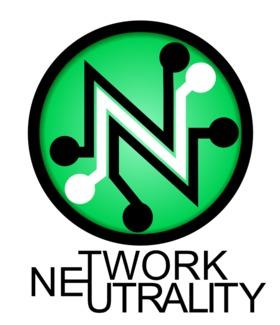News
Your Internet, Your Moment: Sending a Message about Net Neutrality to the FCC


[PHOTO: Wikimedia Commons]
The United States has come to a critical point regarding how the Internet works, as the Federal Communications Commission has opened a public-comment period surrounding the very nature of the way users access and experience the web.
One version of the future: it will include so-called fast lanes, meaning bandwidth purchased at a premium, allowed under certain conditions. Future two, you get regulations that prevent that kind of priority access to online bandwidth.
So, what does this all this mean, how did it happen, and what can you do about it? Let's look at the basics of how we got to this fork in our digital road, and let's outline some practical steps you can take to potentially influence the FCC as it envisions the future of the web.
Net Neutrality: The Basics and Backstory
On the one hand we're talking about an Internet that can play favorites, presumably if you've got the dough to pay your way into a better version of it. The other hand, however, holds what proponents say is a promise of neutrality, at least in theory — so that whether you subscribe to a broadband or a wireless product, your Internet service provider isn't allowed to meddle with the performance of the sites you access and the speed at which you navigate.
So who wouldn't want the latter? Well, in essence, it's two different takes on what's the best long game for the web. The arguments for and against net neutrality break down as follows.
- Proponents of neutrality say it encourages entrepreneurship and fosters human progress, potentially minimizing the impact of money when it comes to how users employ the Internet to create, promote — and succeed at — a whole spectrum of present and future online endeavors.
- Opponents argue that too much regulation of ISPs means that the companies that provide your service won't have enough control and/or incentive to improve the infrastructure the allows for Internet access in the first place. So, long term, the whole web would potentially suffer from decay and slower technological advancement.
That's it, in a nutshell (and leaving out a ton of nuance). And the way we got to this juncture can also be encapsulated by two main points, taking a similarly thumbnail approach.
- Regulations regarding network neutrality have been in play for years, but the most recent go-round started to come to a head in 2010, when President Barack Obama introduced the Open Internet Order. As the FCC implemented it, the order said that network owners couldn't take "unreasonable" action to make access to the web problematic for users. (Note: packed into that word, unreasonable, was just the sort of gray area that lawyers tend to love/hate.)
- In January 2014, a court ruled that the Open Internet Order went too far, based in part on the what the FCC is empowered to do, based in part on what unreasonable means, and also due, in part, to what kind of system the Internet actually represents, under the law. Is the web more like a telecommunications system — and so, regulated, as in the case of phone carriers — or is it an information service that is largely exempt from typical telecom constraints?
No matter how you view it, a key result of these arguments and developments is that we're in the realm of public comment before the FCC. Later this year, the Commission is expected to issue a new directive, replacing the court-vacated order of 2010. And so, if you're ready to have your say about what such a directive should entail, let's look at how you can send a considered opinion to the FCC.
Comments: The Hows and Whens of Public Comment
The upshot of the FCC's comment period is that it runs in two phases, with two deadlines. The public, as well as industry stakeholders, have until July 15 to submit initial comments in writing, and then until September 10 for reply comments.
- To make your initial comments, go to the FCC's proceedings page.
- Click on Proceeding # 14-28 — Protecting and Promoting the Open Internet.
- Fill in the fields on the form, including your name, addresses, and your comment.
- If you want to submit something lengthy, as in several pages long, you can do that by going to the FCC's page for submitting longer filings. Enter the same proceeding number — 14-28 — and then fill in the fields. Upload the document that contains your comments.
On the proceedings page, you can also read through public comments already filed. Just click on the link at the end of the 14-28 row. (After you submit your comments, they'll end up here as well.) Following initial comments, you can also submit a reply comment, based on what you've read in this section of the FCC's site.
Of course, if you've some time, resources — and presumably a bit of clout — you might take your comment-making even further.
"Depending on your stake in the proceeding and your ability to get to Washington, D.C., you can request a meeting with the FCC commissioners and/or their staff to discuss the issue," said Ross Buntrock, an attorney and partner with Arent Fox LLP, in Washington, D.C., and nationally recognized for his work in communications-media and technology law. "If you do have such a meeting, you need to file a notice of ex parte, which is a letter filed in the docket, using the ECFS system, and disclosing the substance of the discussions of your meeting and the officials with whom you met."
However the process plays out for you, if you use the Internet and you think it important to help shape it — one way or the other — this is the time to speak.